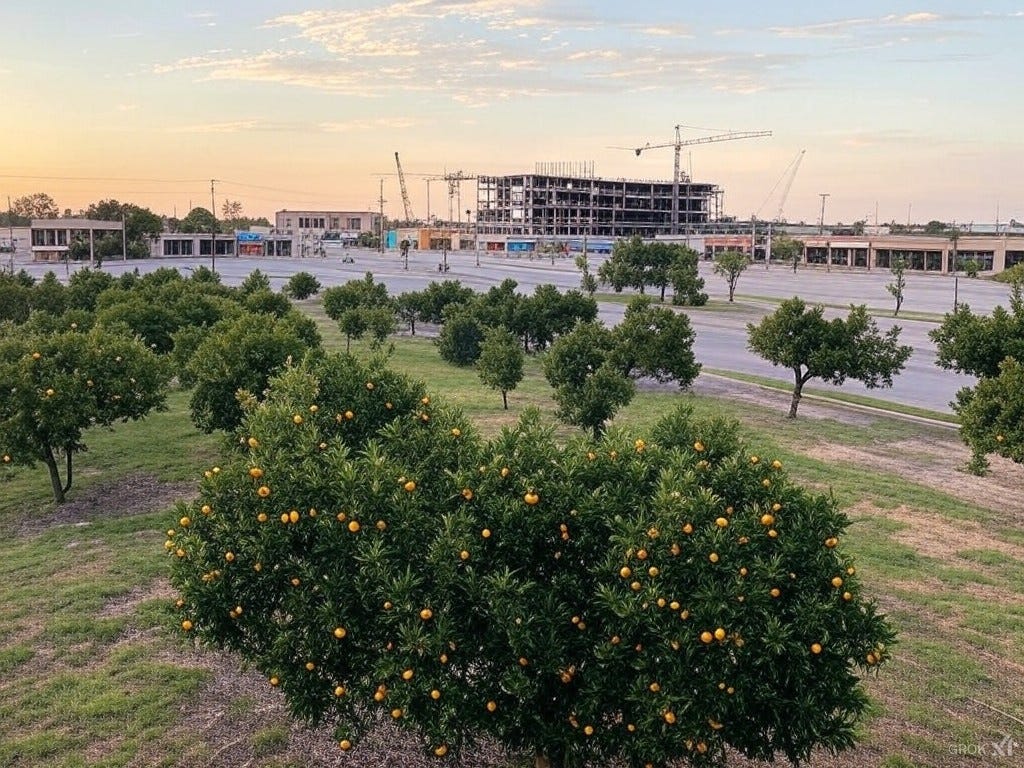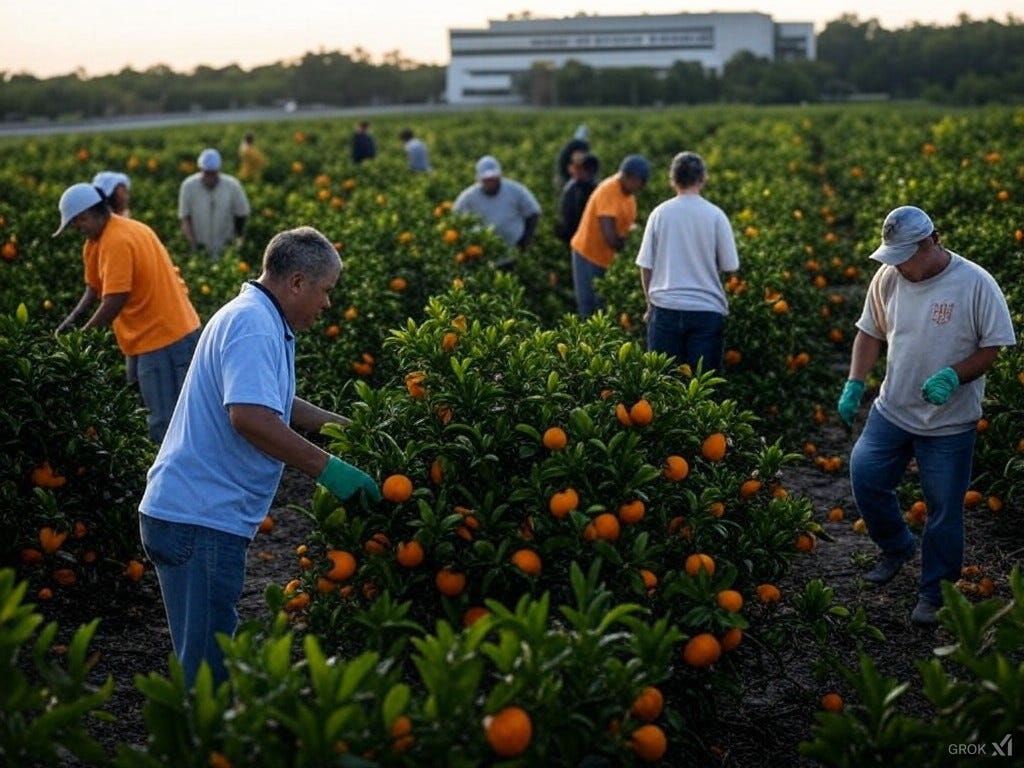Trump's Massive Deportation Plan: Florida Braces for Economic and Social Upheaval
Analyzing the Impact of Deportations on Florida's Workforce, Tax Base, and Community Dynamics with Proposed Solutions
If Trump is to be believed, large-scale deportations of illegal immigrants start on Tuesday, January 21, 2025 — the day after his inauguration. Trump has promised the “largest deportation operation in American history.” It is expected to begin in the Chicago area, targeting those with serious criminal records who pose a threat to Americans and our way of life. After that, I am sure they have a detailed plan, and presumably, they would then go after those illegal immigrants who have over-extended visas and go on from there.
I was curious about what Florida looks like, what the economic impact would be for the state, what the social implications would be, etc. With an estimated one million illegal immigrants living in Florida, it is hard to say it would not have an impact when the population of the state is around 22 million Floridians.
For Florida, I can easily see such deportations creating serious labor shortages in areas like Florida’s agriculture, construction, hospitality, and services such as landscaping and housekeeping. If there were a serious disruption of these workers, it would lead to labor shortages, increased labor costs for businesses, and higher prices for goods and services. After all, it is the law of supply and demand — decrease the supply of workers, and if demand remains high, what do you think will happen? If you think grocery store prices and eating out at a restaurant are expensive now, wait to see this plan implemented.
Another note of concern is that illegal immigrants contribute to Florida’s tax base, contributing to state and local taxes via sales tax, property tax, and many other indirect taxes and fees. Deportation of one million illegals will affect state funding for public services.
There is a better way; several, but I’ll touch on two that would be most palatable to most Americans. 1) For example, We could implement true guest worker programs that offer temporary legal work visas for the industries I mentioned above. This would increase the labor supply legally while stabilizing prices. 2) We could streamline the immigration process to make it quicker, less bureaucratic, and more responsive to the economy. It would reduce wait times for visas and adjust immigration policies based on skills that are in demand, allowing them to enter the country faster. While I believe in meritocracy, limiting fast immigration to those with high-level skills does not help us with much need for low-skill jobs.
Another aspect of this mass deportation effort is on the social side. This will undoubtedly disrupt many communities around Florida, and will likely cause some legal immigrants to get caught up in the system, which will cause great strife and fear. Such situations will reduce the people’s trust in law enforcement, which is already low, and cause many problems for families who are in a mixed-status situation — where some members are U.S. citizens or legal residents, while others are illegal.
One thing’s for sure: this will be a boon for immigration lawyers as people seek to contest and appeal decisions. This will burden Florida’s already strained legal and administrative systems, especially immigration courts.
Another aspect if with regard to our schools and healthcare service sectors where there are many children enrolled. While the children may be U.S. citizens, Florida enrollments may drop as students will need to move elsewhere to live with other family while their illegal parents get deported. I tried to get solid numbers on how big of an issue this would be, but they are all over the place, so it’s somewhat of an unknown outside of the fact it will be happening at some level. Similarly, healthcare services will be affected for similar reasons.
Now, in 2023, Governor Ron Desantis signed SB 1718 into law, forcing businesses of 25 or more employees to comply with the federal e-verify system, which checks the legal status of all new hires. We do not know how much that has deterred illegal immigrants from being in or working in the state, so that is an unknown. The law also banned “sanctuary cities” in Florida while increasing the penalties for transporting illegal immigrants into Florida. Again, the data is not in with solid numbers as to how effective SB 1718 has been a deterrent to making Florida inhospitable to illegal immigrants, and we’ll see how things play out over the next couple of years.









